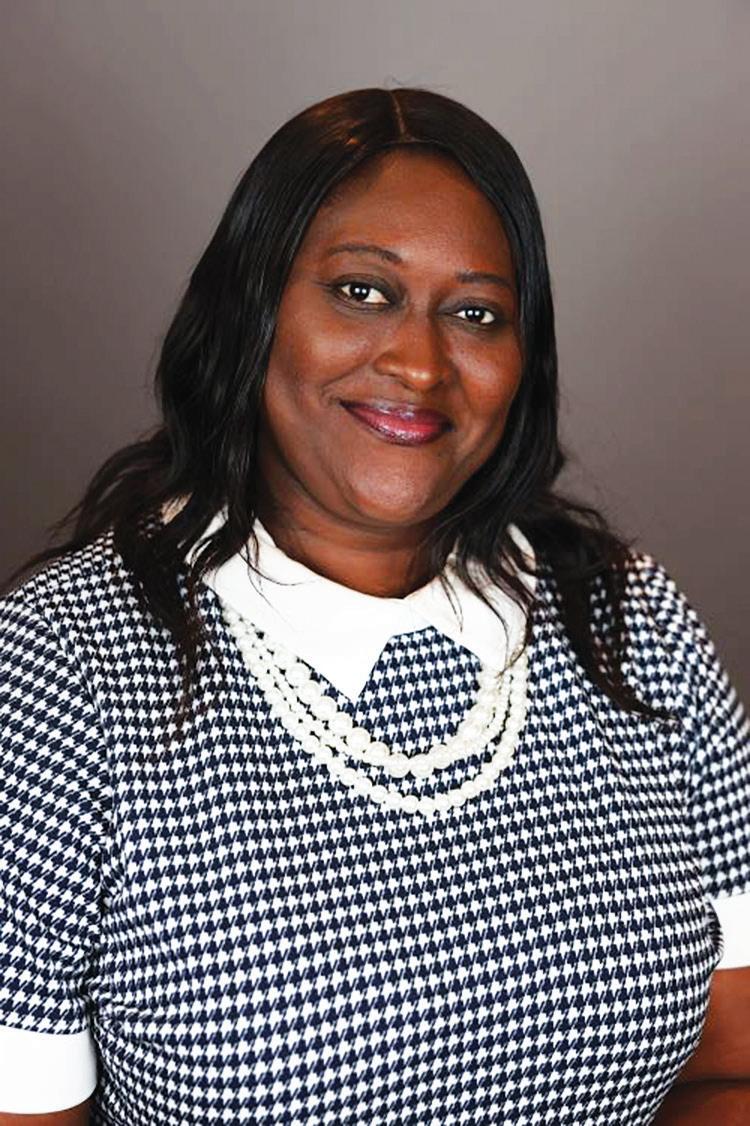
5 minute read
Backlash Against Progress:
Backlash Against Progress:
Diversity, Equity and Inclusion Rollbacks in the US and the Legal Community’s Response

By: Dr Banke Olagbegi-Oloba, Diversity Officer
in the International Law Section, American Bar Association.
Introduction: A Movement Under Fire
Lately, Diversity, Equity, and Inclusion (DEI) initiatives in the United States (US), once heralded as necessary correctives to systemic inequity have suffered intense political and legal scrutiny. Following the US Supreme Court’s 2023 decision to strike down affirmative action in university admissions in the Students for Fair Admissions, Inc. v. President and Fellows of Harvard College and Students for Fair Admissions, Inc. v. University of North Carolina case, public and private institutions have faced a rising tide of legal threats, state legislation, and funding cuts aimed squarely at DEI programmes. While these rollbacks have reached across many sectors, the legal profession, both as an employer and as a gatekeeper to justice, stands at a crossroad. The American Bar Association (ABA), which is the largest voluntary association of lawyers in the world, has responded with a clear message that inclusion is not optional, and the pursuit of equity remains a legal and moral imperative.
The Chilling Effect of Legal Uncertainty
In the US, law firms, corporations and even universities are redefining or scaling down their DEI initiatives. They are concerned about litigation or political backlash, while others point to ambiguous legal guidelines post-affirmative action ruling. State-level policies, particularly in Utah, Florida, Texas and other Republican-led jurisdictions, have banned DEI offices in public universities and curtailed DEI related trainings. For instance, the National Broadcasting Company (NBC) reported in 2024 that Republican lawmakers in over thirty US states had introduced over 100 bills to either ban, restrict or redefine their DEI initiatives. Florida introduced a rule banning colleges and universities from using state or federal funds to promote DEI initiatives. The government of Texas also signed a law in 2024 which required all state funded colleges and universities to close their DEI offices. This regulatory uncertainty has left many organisations scrambling to determine what is legally permissible, weakening the momentum of age-long work towards inclusivity. For marginalised communities, if not carefully handled, this may translate into fewer opportunities, diminished recruitment and career progression pathways. It could also lead to a reversion to historically exclusionary practices.

Why does it Matter for the Legal Profession?
The legal profession has historically struggled with representation. According to the ABA’s Profile of the Legal Profession (2023), only five to six per cent of US lawyers were Black and only two to three per cent were Black women. Latina women made up just about two to four per cent of the overall population of lawyers in the US. In this context, dismantling DEI initiatives threatens to exacerbate existing disparities, further distancing the profession from the communities it serves. It is important to note that DEI programmes are more than hiring targets! They help in shaping equitable workplace cultures, reducing attrition rates among underrepresented lawyers, and enriching the legal field through varied perspectives essential for justice.
The ABA’s Response: Resistance through Advocacy
The ABA has taken a proactive and firm stance against anti DEI movements. The ABA is committed to advancing DEI at all levels and recognizes the invaluable skills, talents, and experiences inherent in a membership consisting of diverse individuals with varying yet rich backgrounds. The ABA equally recognizes that diversity consists of various dimensions, including race, ethnicity, gender, sexual orientation, socio-economic status, age, physical abilities, religious beliefs, political beliefs, neurodiversity, where underrepresentation exists as well as at the intersectionality of the diverse differences. The ABA, therefore, introduced Goal III in 2008. Goal III promotes full and equal participation in the association, the legal profession, and the justice system by all persons. It also seeks to eliminate bias in the legal profession and the justice system.
Additionally, the ABA Board of Governors passed a resolution on April 3, 2025, reaffirming the association’s commitment to ABA Goal III. The resolution is part of ABA’s ongoing work to promote full and equal participation in the association, the profession and the justice system by everyone and to offer opportunities to all communities and advance the rule of law. The resolution calls on the ABA to review the language describing its DEI activities to ensure consistency among the association’s various policies and programmes and among the ABA’s various entities. It seeks to strengthen the efforts of ABA entities that are keen on furthering Goal III in order to provide central direction regarding those policies and programs. The resolution resolves that ABA policies or programs that seek to further Goal III must not base eligibility for participation on particular group identities and instead must base eligibility on a person’s demonstrated commitment to Goal III.
The ABA has also reiterated its unwavering support for DEI in legal education and practice, noting that such efforts are integral to advancing the rule of law and access to justice.
Comparative Lessons and Global Relevance
While the US context is unique, the rollback of DEI measures has global implications, particularly for jurisdictions that look to the US for policy cues. Legal professionals globally must, therefore, be vigilant in protecting DEI gains. The ABA’s model, rooted in professional ethics and the role of law in a democratic society, offers valuable guidance: DEI is not a political trend but a core pillar of justice and professional integrity!
Conclusion: The Fight Is Not Over
DEI work in the US is facing formidable resistance and challenges, but it is far from defeated. The ABA’s commitment to pushing back on discriminatory policies and supporting inclusive legal practice, legal education and practice sends a powerful message to lawyers worldwide, advocating that equity is a non-negotiable element of justice. At a time when regressive forces are on the rise, it falls on the legal profession to lead with courage, clarity and compassion! ■
Dr Banke Olagbegi-Oloba,
Diversity Officer, International Law Section,
American Bar Association.
https://www.linkedin.com/in/banke-olagbegi-oloba-ph-d-mcarb-ficmc-25b42678/
https://www.linkedin.com/company/aba-section-of-international-law/








